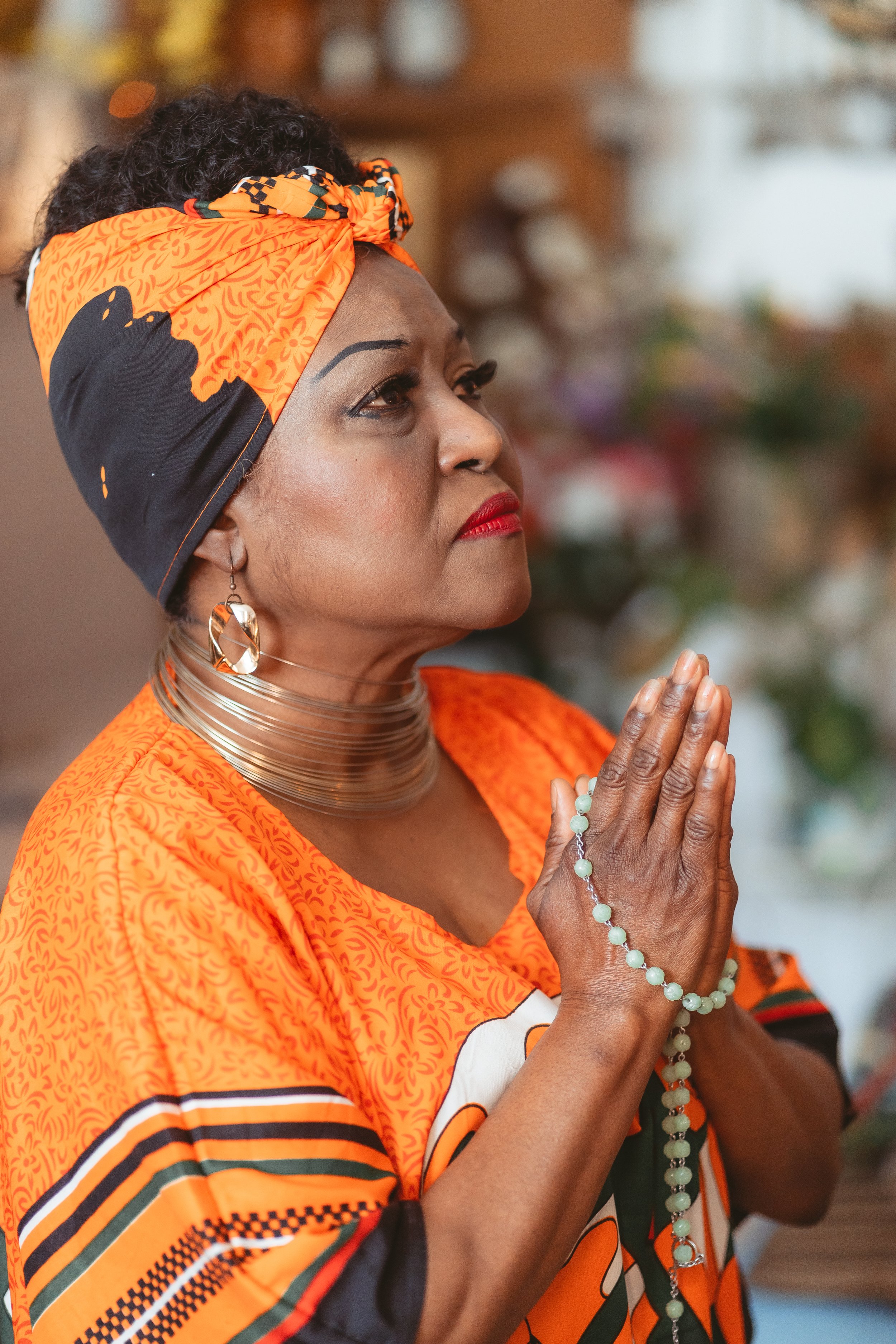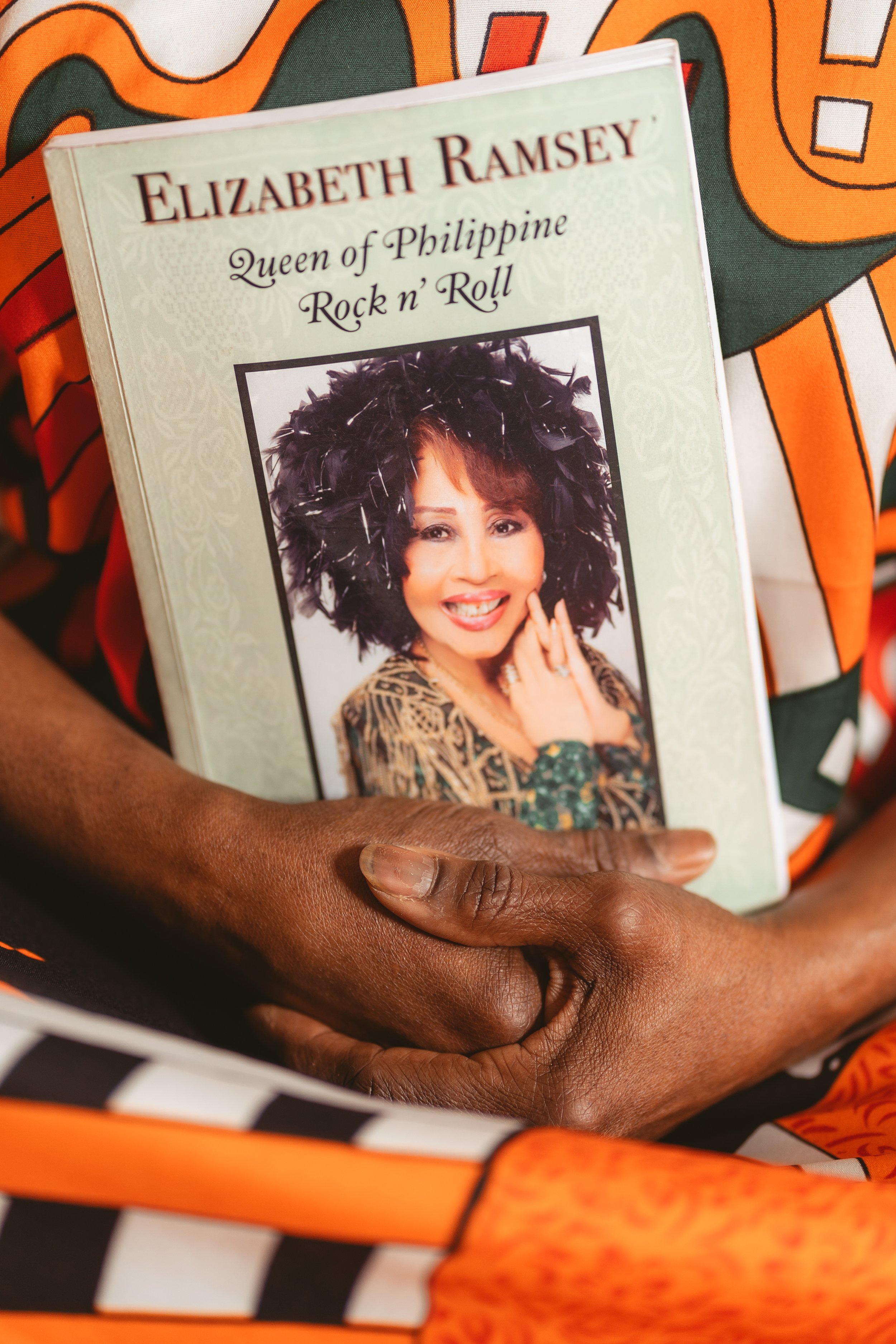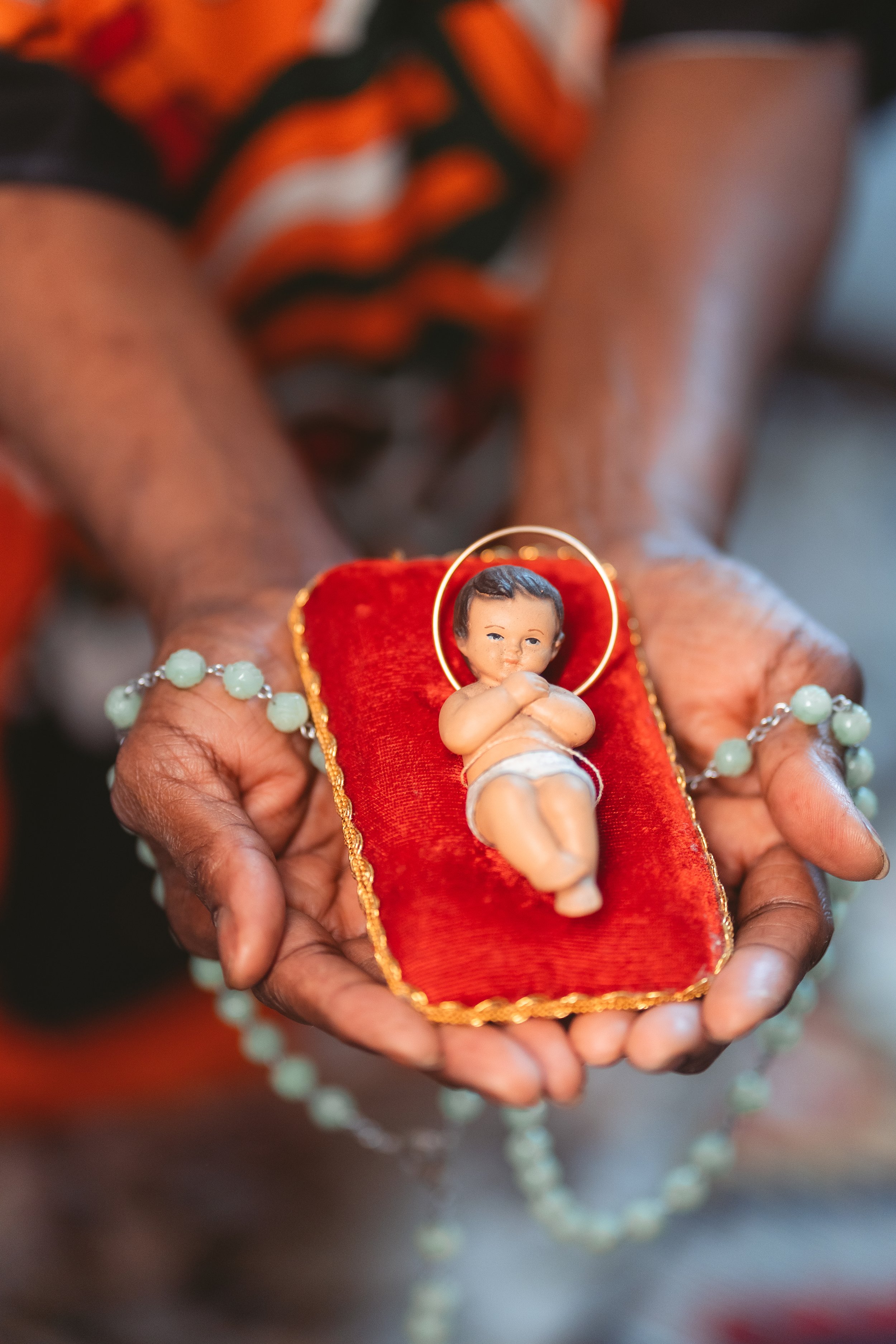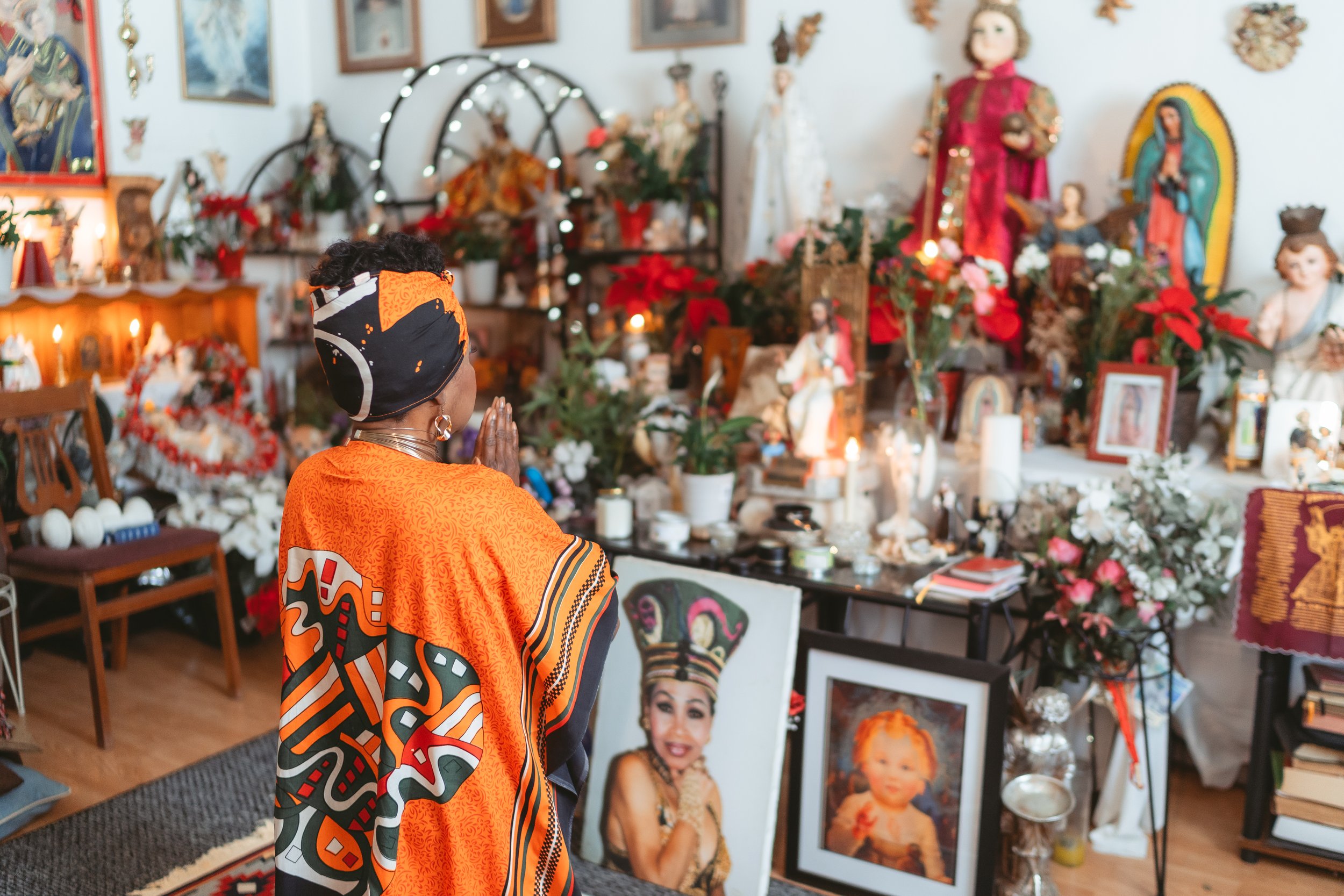A daughter's tribute to her mother, Elizabeth Ramsey, the Queen of Philippine Rock n' Roll
Sansu Ramsey, daughter of Jamaican Filipina singer Elizabeth Ramsey, published her book, “Elizabeth Ramsey: Queen of Philippine Rock N’ Roll” in September 2017. Photo: Jen Rocha
Before her passing, Jamaican Filipina singer Elizabeth Ramsey had a dream to document her life story as a celebrated singer on the international stage. She confided in her daughter Sansu, who traveled from the United States to the Philippines to visit her.
“My mother was so ill. She told me, ‘Sansu, please record me. Let me finish telling you the story about my life because I want the Philippines to always remember that there was once a dark-skinned Filipina who broke all the color barriers in the Philippines’ entertainment world,’” Sansu said.
Sansu kept her promise and spent the next five years until the last two weeks before Elizabeth's passing, recording her mother’s account, which formed the foundation for the book “Elizabeth Ramsey: Queen of Philippine Rock N’ Roll.” Published in September 2017, the book highlights Elizabeth’s life, her family, and the obstacles she overcame.
“Before you start reading my book, always remember that I carried these memories all my life and trusted my dear daughter Sansu to write the way I wanted to be. It is a shame that I am no longer with you to hear your ‘Oohs!’ ‘Aahs!’ ‘What!’ ‘Really!’ ‘Who!’ ‘For Real!’ But you know what! I am now with my dearest Santo Niño watching over all of you reading my book and eating rice with stinky fish,” Elizabeth wrote in the introduction of her book. “I hope you will be inspired, have learned from my mistakes, feel motivated, and know the importance of family, faith, and love.”
Elizabeth was born on December 3, 1931, in San Carlos City in the province of Negros Occidental, Philippines. At 16, she began performing at local fiestas. Her father initially disapproved of her dream to become a singer, but she knew she was destined for success. Elizabeth traveled back and forth between Manila, Cebu, and San Carlos to visit family and look for singing opportunities. She eventually started a family of her own in the 1950s.
She received her first big break on a singing contest segment of “Student Canteen,” the first noontime show on Philippine television. From that moment, Elizabeth gained opportunities to audition. Shortly after, she was hired to perform at the Manila Grand Opera House and the Clover Theater.
Elizabeth faced racism throughout her career in the Philippines and internationally. In 1961, she was invited to be one of the main performers at Steve Parker’s “Philippine Festival” in Las Vegas. She and other Filipino performers were barred from entering the Dunes Hotel because of their race. Despite the encounter, Elizabeth performed and received congratulations from world-renowned musicians such as Harry Belafonte, Sammy Davis Jr., and Elvis Presley.
“It was tough being Black, and that’s why it was a historical moment when my mom broke that boundary because people had never embraced or honored a darker Filipino person. They had never seen an entertainer like her on stage with such talent,” Sansu said.
Sansu faced similar hardships while growing up in the Philippines. Bullied for her complexion, Sansu often felt ostracized.
“I thank God for having a mother who believed in and protected me. She encouraged me at a young age by introducing me to show business, which taught me to be proud of who I am,” Sansu said. “My mom worked so hard in her life. I really admire her for all her accomplishments and for being a strong woman.”
Inspired by her mother’s humanitarian work, Sansu joined the Aeta Tribe Foundation and currently serves as its newest president. Formed in 2015, the Aeta Tribe Foundation provides support to the Aetas, one of the original inhabitants of the archipelago, and assists in repairing the devastation and forced displacement caused by the volcanic eruption of Mount Pinatubo in June 1991.
“The Aetas saved my grandfather and my mother during World War II. They hid them from [Imperial] Japanese soldiers who were hunting American soldiers and their families,” Sansu said. “Joining the foundation was my way of giving back to the tribes that helped my family stay alive.”
The Aeta continue to live in extreme poverty years after the volcanic eruption, Sansu said. In response, the Aeta Tribe Foundation partners with the Aeta community to develop solutions that address their specific needs, including robust water management strategies that protect the integrity of the environment and its natural systems.
Sansu is the CEO of RSJ Production, which produced “The Sansu Show” on GMA Pinoy TV and other fundraising events in the San Francisco Bay Area. She is also in the early stages of developing a full-length movie commemorating her mother’s life story.
“I want to continue her legacy. I want more people to remember that there was Elizabeth Ramsay at one time. That’s what we’re planning to do,” Sansu said.
Photo: Jen Rocha






